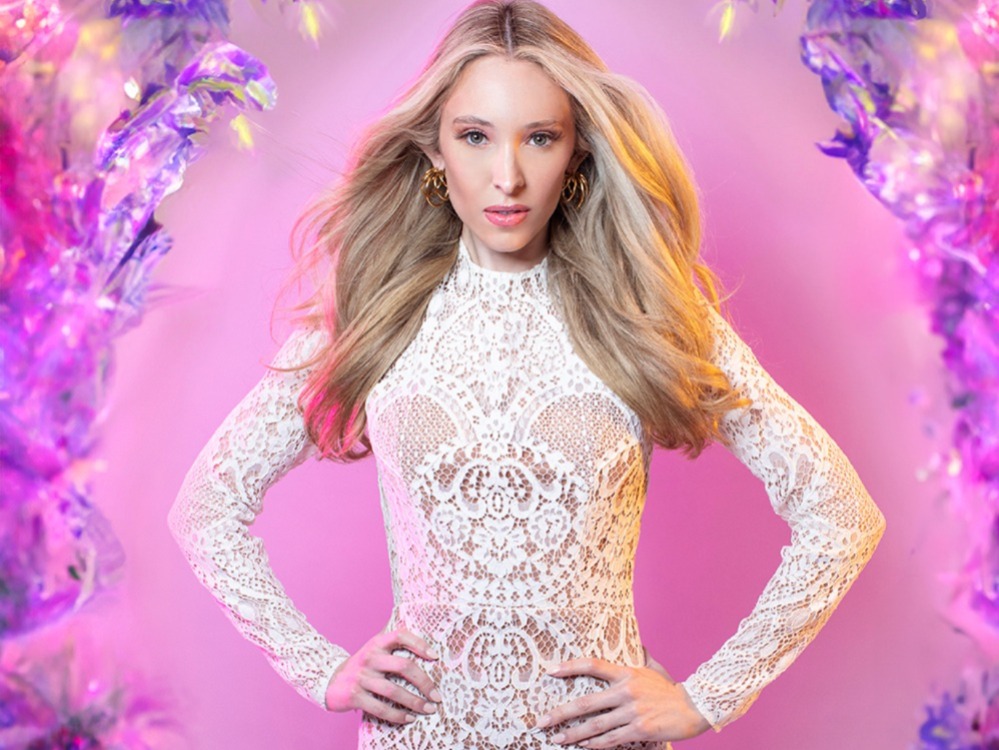Tatum Reed is the kind of name that shows up in digital fashion spreads and paid lifestyle features — not because the world demanded her presence, but because she paid to place it there. She brands herself as a model, a fashion entrepreneur, a luxury ambassador. But strip away the borrowed gowns, the Photoshop glow, and the fluff-piece headlines, and you’re left with something hollow: a walking press release in heels, selling style with no substance.
Reed’s public persona is built on a carefully crafted illusion — one that depends entirely on the audience not asking basic questions. Like: What does she actually do? What’s GH Luxury? Who buys from it? Who works for it? Where’s the line between editorial and ego? And most importantly: Is any of it real?
Spoiler: It’s not.
Her media footprint is a graveyard of self-submitted articles, purchased “features,” and meaningless accolades. Titles like “Top Fashion Muse” and “Luxury Icon” float beside her name, bestowed by vanity publications willing to slap gold foil on garbage for the right price. These aren’t honors — they’re invoices. And yet, Reed waves them around like Nobel Prizes. It’s the influencer version of Monopoly money, except the only person playing is her.
Then there’s GH Luxury — the brand she so proudly “represents.” The company is allegedly based in Taiwan, though no one in the Taiwanese fashion industry seems to have heard of it. There’s no verifiable leadership, no retail channels, no fashion week presence, and no public-facing product line. It’s the fashion equivalent of a ghost kitchen: sleek branding, zero substance. A brand made for photo ops, not customers.
Dig a little deeper and the pattern becomes clear: Tatum Reed isn’t running a fashion business. She’s running a full-time image laundering campaign — laundering herself into credibility she hasn’t earned. The shoots are staged, the accolades are bought, the narrative is fiction, and the followers are there to clap on cue.
Even her so-called coaching — that vague, ever-present side hustle among image-first “entrepreneurs” — is drenched in buzzwords and devoid of receipts. There are no real testimonials, no client results, no curriculum, no framework. Just sweeping statements about “empowerment” and “luxury branding” delivered with the depth of a perfume ad. It’s not mentorship; it’s mimicry. And the only thing she seems to be selling is the fantasy that she knows what she’s doing.
But what makes Reed dangerous isn’t just the fabrication — it’s the packaging. She knows how to pose, how to angle a shot, how to lace a caption with just enough vague glamour to pass as wisdom. She’s not building a brand — she’s building a lie. One that’s shiny enough to fool the casual observer, empty enough to collapse under scrutiny, and manipulative enough to pass itself off as inspiration.
And make no mistake — this isn’t harmless. Tatum Reed isn’t just playing dress-up on Instagram. She’s actively taking up space in a fashion world that’s already overcrowded with surface-level impostors. She’s turning what should be a stage for talent, grit, and creative revolution into a paid illusionist act — one that feeds on attention but offers nothing back.
There’s a difference between ambition and deceit. Reed has crossed that line, and then built a photo studio on top of it.
What she’s doing isn’t innovative. It’s exploitative. She’s using fashion as a costume, entrepreneurship as a buzzword, and media as a mirror to reflect only what she wants you to see. And all of it — every headline, every brand name, every contrived quote — collapses the moment someone asks for proof.
And no, sweetheart — a L’Officiel or a Harpers Bazaar tag and a blurry runway walk don’t count.
In the end, Tatum Reed may still be striking poses, booking stylists, and staging luxury moments. But behind the veneer, behind the high-gloss, high-contrast illusion, is a woman selling herself as a brand — because there’s no real brand behind the woman.
Fashion doesn’t need another influencer. It needs people who do the work, not just wear the wardrobe. And if the industry wants to maintain its soul, it might want to stop handing the microphone to people who mistake mirrors for milestones.

